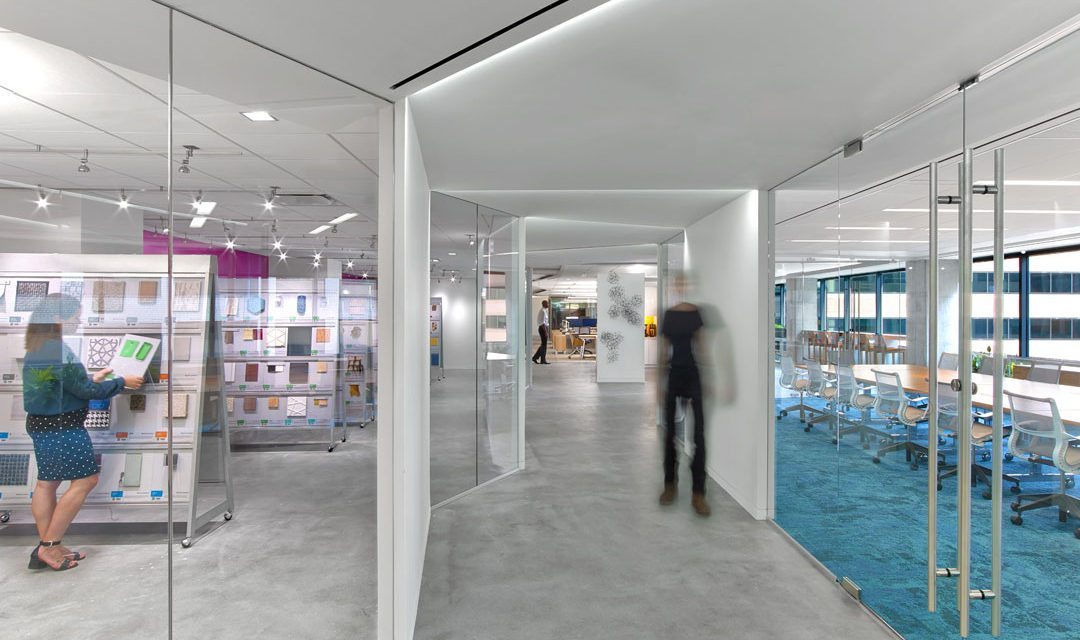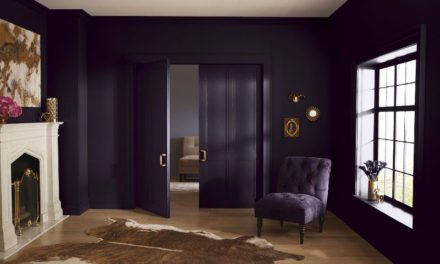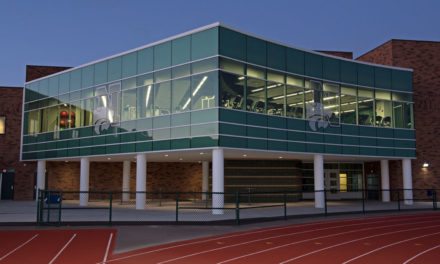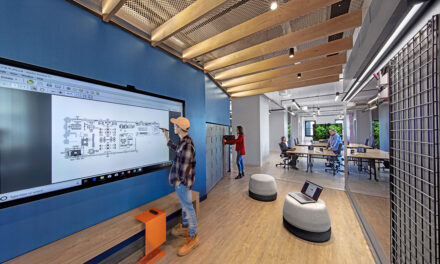The Association Achieves the Highest Levels of Recognition for Health, Wellness, and Sustainability
(June 12, 2017 — Washington, D.C.) — The American Society of Interior Designers (ASID) headquarters office is the first space in the world to achieve both Platinum Level Certification for the WELL Building Standard™ (WELL™) under WELL v1 and Leadership in Energy and Environmental Design (LEED), under the LEED ID+C rating system – the highest recognition awarded by the U.S. Green Building Council (USGBC) and the International WELL Building Institute™ (IWBI™). The office space, designed by Perkins+Will, incorporates the most innovative health and wellness design features, and has sustainability as a central philosophy.
“At ASID, we take tremendous pride in being a champion for good design and demonstrating that design impacts lives – to be the first space awarded WELL Certified™ Platinum under WELL v1 and LEED Certified Platinum is an incredible honor,” said ASID CEO Randy W. Fiser. “We began this project with a clear goal of showcasing the many ways design can positively affect the health and well-being of employees while boosting resource efficiency. At ASID, we believe in research-based results in design and placed an emphasis on third-party validation of the space. Becoming WELL Certified Platinum and LEED Certified Platinum is the product of revolutionary visioning from the project designer Perkins+Will, commitment from our construction partners and consultants, and complete buy-in from ASID staff.”
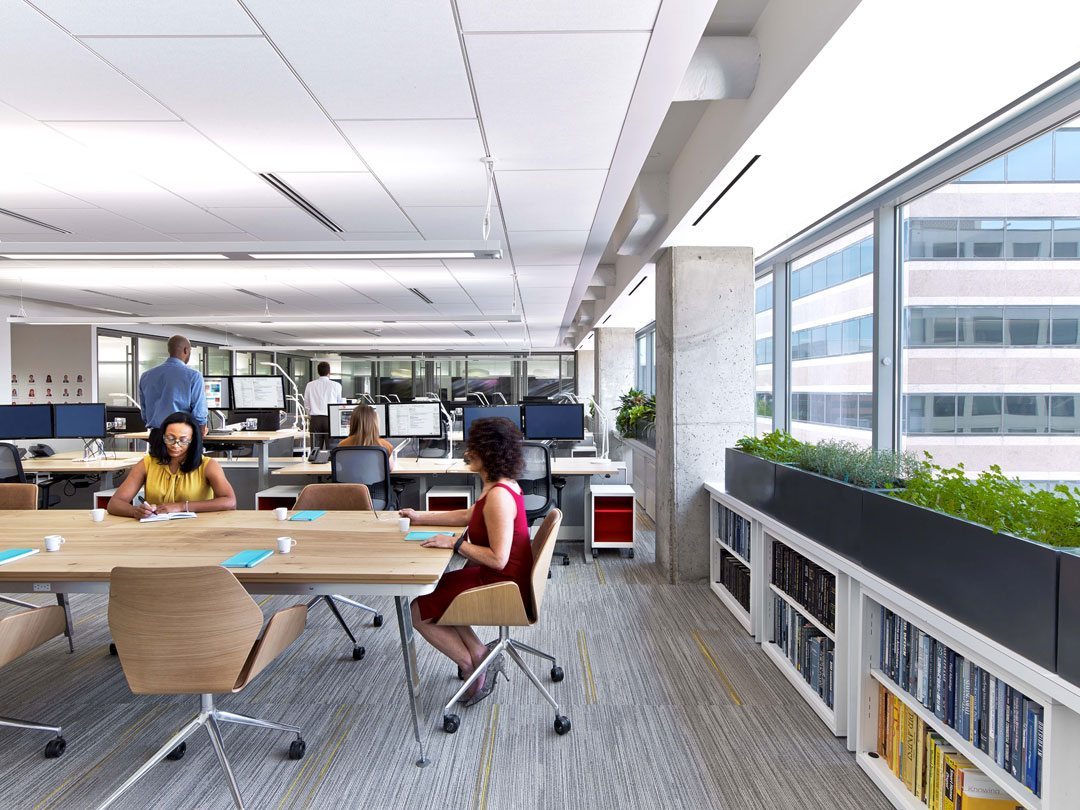
ASID Headquarters in Washington, D.C. Photo Credit: Eric Laignel
The innovative 8,500 square-foot office, located in downtown Washington, D.C., was WELL Certified at the Platinum level under WELL v1 on June 9, 2017 and LEED Certified Platinum on January 18, 2017. Administered by IWBI, the WELL Building Standard is an evidence and performance-based system for measuring, certifying, and monitoring features that impact human health and wellness in the built environment, through air, water, nourishment, light, fitness, comfort, and mind.
The ASID office features human-centric design elements including: biophilic design strategies, which introduce natural elements into a space to help reduce stress and increase air quality; sound masking systems; rigorous water quality standards; and a circadian lighting system developed to expand efficiency by helping to regulate the body’s physiological processes. These design foundations are coupled with policies and procedures that emphasize employee health and productivity. Fresh fruit and vegetables are provided, sit/stand desks are present at workstations, and a wellness room is available to provide mental breaks, among countless other features.
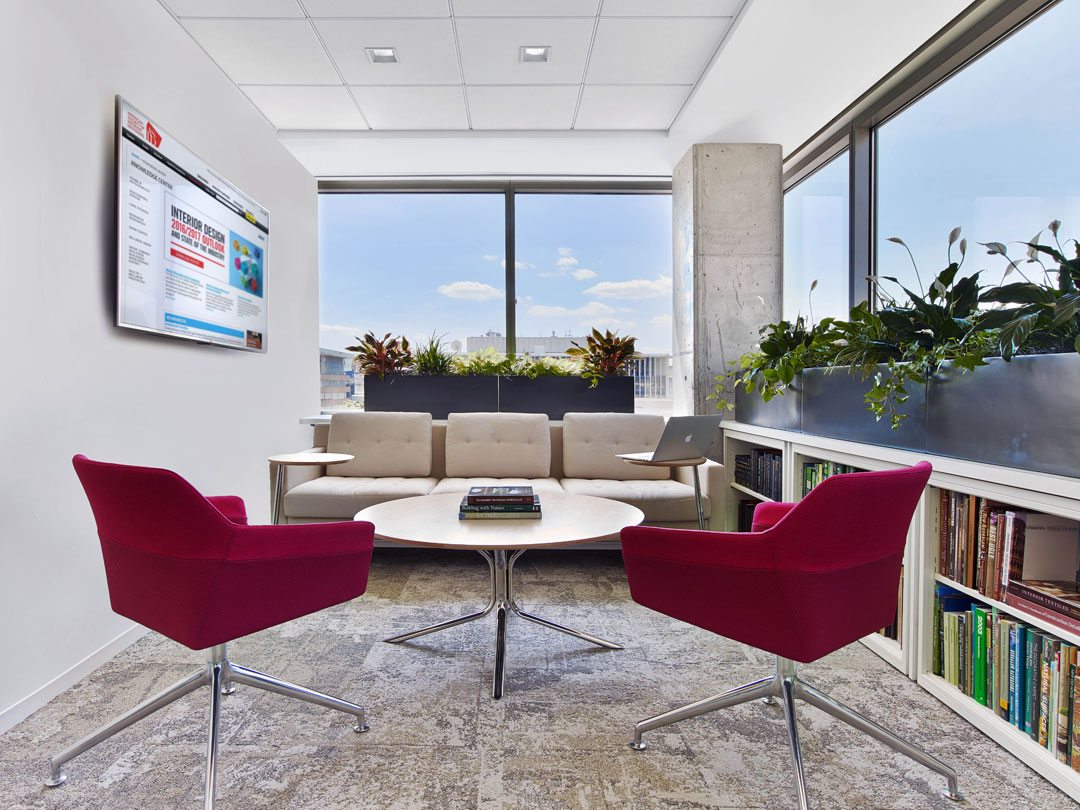
ASID Headquarters in Washington, D.C. Photo Credit: Eric Laignel
Through funding by the ASID Foundation, the office is serving as a living laboratory for the design community. The positive impact of the office is demonstrated through some of the pre-/post-occupancy research conducted to-date. The indoor environmental attributes (i.e., lighting, acoustics, and CO2 levels) show that the ASID office is a healthier environment. An assessment of key performance indicators of an innovative workplace, using the CAPTIW© worksheet, also shows an increase in all parameters, placing the ASID HQ office above the benchmark data.
Additionally, research by Cornell University found that employee satisfaction on the environmental quality of the office increased significantly, as did overall job satisfaction, perceived support by the organization, and perceived organizational productivity.
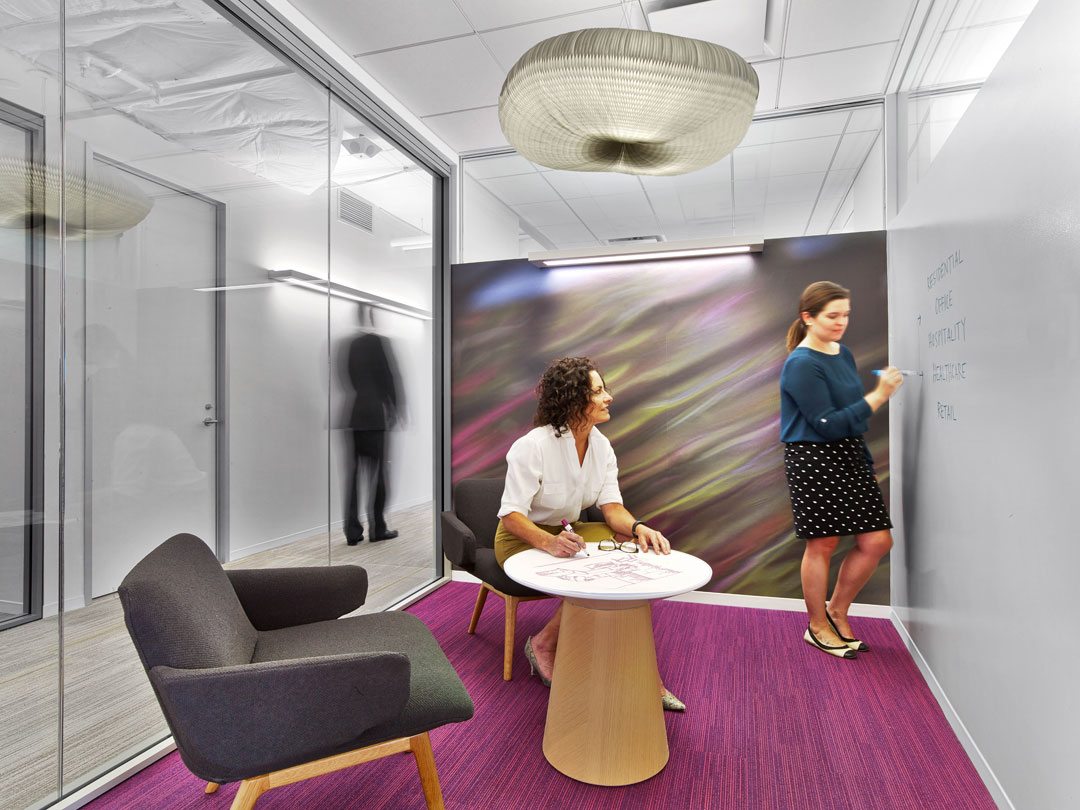
ASID Headquarters in Washington, D.C. Photo Credit: Eric Laignel

